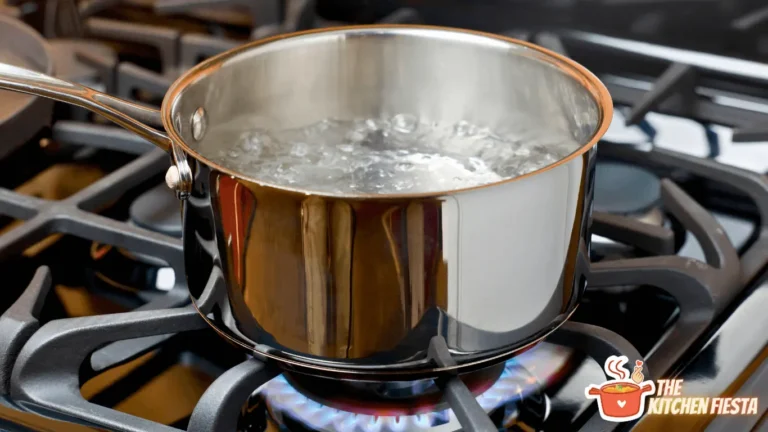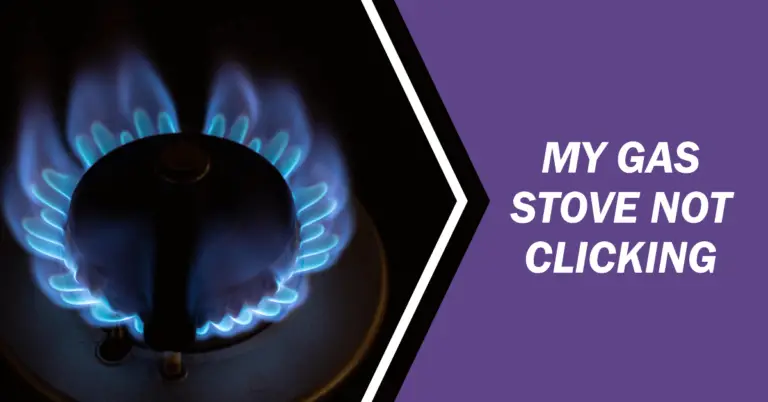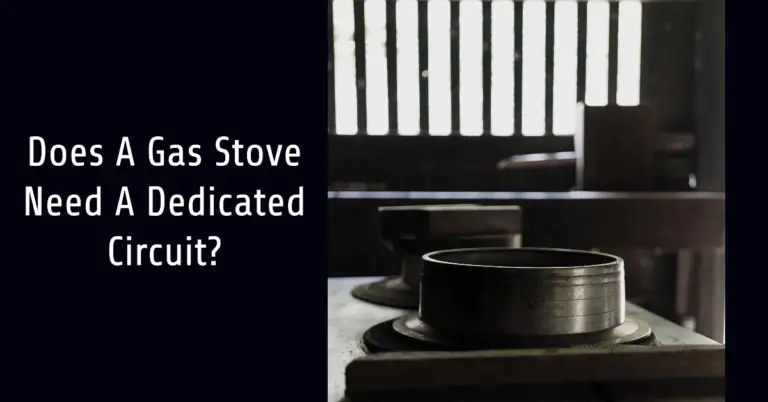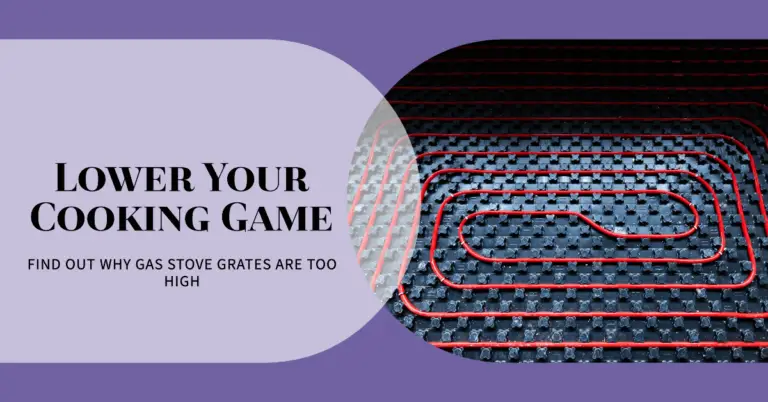Why Is My Gas Stove Making Noise When It’s Off?
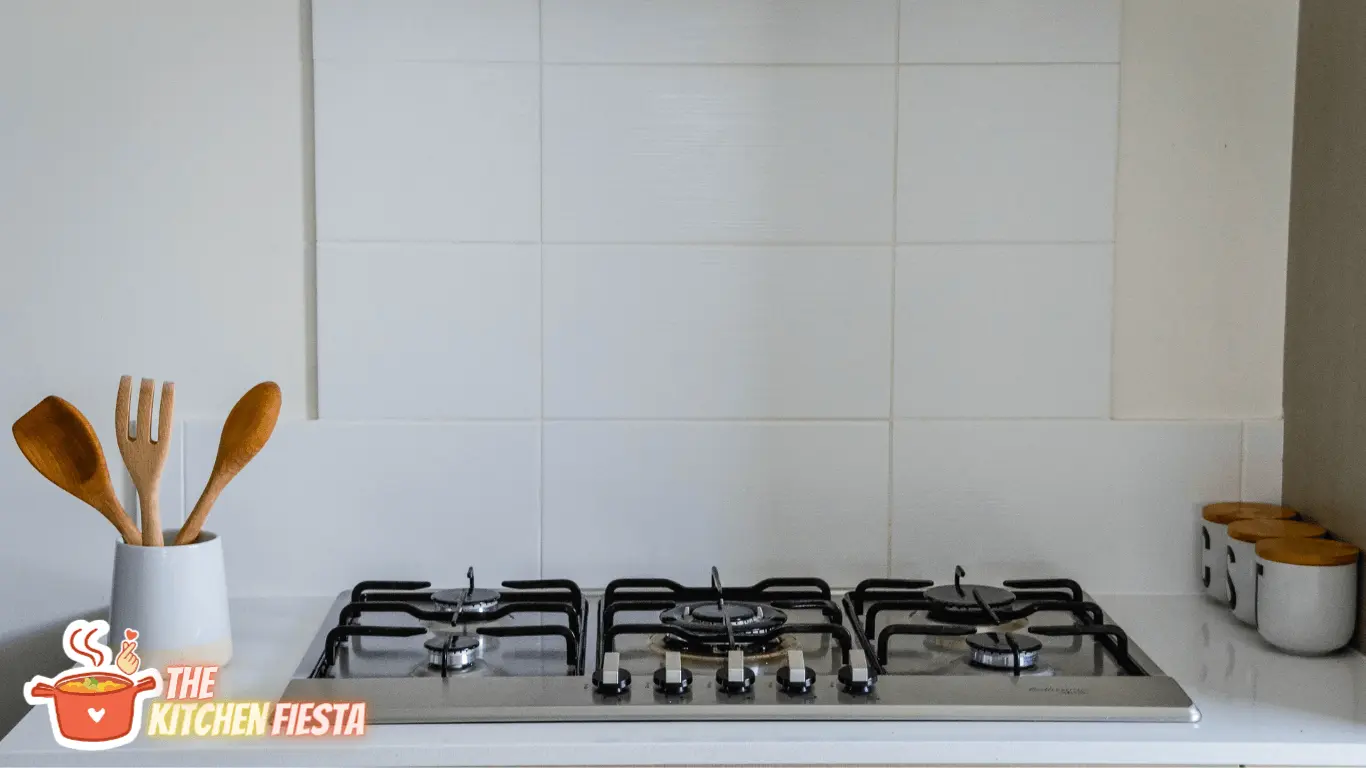
Have you ever noticed your gas stove making odd sounds like hissing, popping, or clicking even when the burners are turned off? These unexpected noises coming from your gas stove can be alarming and confusing. But don’t worry – in most cases, the sounds have logical explanations that can be addressed with some simple troubleshooting and maintenance.
In this in-depth guide, we’ll explore the most common reasons behind your gas stove making noise when it’s off and provide tips to stop the annoying sounds. You’ll learn how to pinpoint issues with the gas line, burner tubes, igniter, gas regulator, and more. With some hands-on repairs, you can often solve the problem yourself without calling for costly appliance technician visits.
So why does your seemingly inactive gas cooktop or stove keep making noises? Let’s find out…
What Type of Noisy Gas Stove Symptoms Are You Dealing With?
The first step in diagnosing the cause of a noisy gas stove is identifying what type of sound you’re hearing. Pay close attention to when the noise occurs and what it resembles. Here are some of the most common sounds your gas stove can make:
- Hissing, whistling or a high-pitched hum
- Popping, clicking or buzzing
- Continuous sparking or snapping noise
- Loud rumbling or vibrating
Take note if the noise comes when you turn the burner knob to “light” or if it persists even with all burners switched off. Also check if the sound happens immediately or if it’s delayed after using the stove.
Being aware of the specific noise type and timing will help narrow down the possible culprits. Now let’s explore some of the typical reasons behind your gas stove making noise when not in use and how to troubleshoot each cause.
Hissing and Whistling Noises – Signs of a Gas Leak?
One of the most worrisome noises your gas appliance can make is a hissing sound. It’s similar to the noise of air escaping rapidly from a balloon. This sound usually means gas is leaking from somewhere.
The most likely leak sources are damaged gas lines or a faulty connection. Leaks are extremely hazardous and can lead to explosion and fire risks. So if you ever detect the smell of natural gas or hear prolonged hissing from your inactive stove, take action immediately:
- Turn off the main gas supply valve to the stove.
- Open windows to ventilate the kitchen.
- Don’t light any flames or operate electrical switches.
- Evacuate everyone from the home.
- Call the fire department or your gas provider from outside the home.
Professional technicians have specialized leak detection equipment to find the exact source of the gas leak and make repairs. Never attempt to find or fix a major gas line leak yourself.
In some cases, a brief hissing sound when first turning on a burner is normal. This is gas flowing through the supply lines before the burner ignites. But sustained hissing or leaking requires professional help for your safety.
Other Causes of Hissing Noises
If the hissing last for just a few seconds when the burners are turned off, it could point to a couple other issues:
- Damaged burner: If food spills, grease buildup or other debris clogs the small burner holes, it can constrict gas flow. This creates a whistling or hissing sound. Carefully clean the burner caps and tubes with soapy water and a soft brush.
- Igniter malfunction: The electronic igniter on a modern gas stove creates a spark to ignite the gas. If it keeps sparking repeatedly when the burner is off, the rapid firing can cause a hissing sound. Replacing a worn-out igniter should stop this.
- Gas regulator problem: The regulator controls gas pressure to the stove. If it sticks open, extra gas can continue flowing after you turn the knob off, causing hissing. Have a technician inspect the gas regulator.
So in summary, prolonged hissing means there’s likely a dangerous gas leak requiring immediate shutdown and professional repair. But occasional brief hissing when the stove is off could signal smaller fixable issues like clogged burners, bad igniters or faulty regulators.
Clicking and Popping Noises – What’s Causing Them?
Some gas stoves make a constant clicking or popping sound while in use or even when turned off. This is different than the clicking of the igniter sparking to light the gas. Instead, it’s a rapid rhythmic clicking or popping that persists even after the burner has ignited.
Several defects can cause this annoying sound:
- Expand and contract metal: As the stove heats up and cools down during use, the metal parts subtly expand and contract. This can lead to a ticking or popping noise from the shifting burner caps. It usually goes away once the stove fully cools.
- Clogged burner tubes: Lint, debris and spider webs can build up inside the slender tubes feeding gas to each burner. This disrupts smooth gas flow, which can cause popping noises when igniting. Carefully unclogging the tubes with a thin brush usually solves it.
- Igniter malfunction: If the electronic igniter keeps sparking after the burner lights, the rapid-fire clicking may be audible. Simply replacing a worn-out igniter should correct this issue.
- Too much gas flow: If the gas regulator or valves are faulty, excessive gas flow can cause popping noises from the burner struggling to ignite. Have a technician adjust the regulator pressure and check the valves.
So in most cases, the clicking and popping indicates obstructed gas flow or ignition issues. Thoroughly cleaning your gas stove burners, double-checking the igniter, and having the gas supply inspected should quiet things down. Call for service if problems persist after trying these troubleshooting tips.
Why Does My Gas Stove Hum or Buzz?
Hearing a low hum or buzzing resonance from your gas stove can be perplexing. This sound usually happens when burners are on but can occasionally persist with them off.
Some potential sources of a humming stove include:
- Blocked gas flow: If something obstructs the gas supply lines or burner tubes, it disrupts the smooth flow of gas. This turbulence creates vibration against the stove parts, causing a humming or buzzing noise. Clear any kinks or clogs in the gas system to restore proper flow.
- Gas pressure problems: Inadequate gas volume or pressure due to issues with your gas line, regulator or valves can also lead to abnormal burner vibration and humming. Have a technician verify your gas pressure meets appliance specifications.
- Air flow issues: For clean burning, each burner needs the right mix of fuel (gas) and air. Too much or too little air flow causes irregular flames and vibration. Check the air shutters around each burner and adjust them as needed for the proper gas-to-air ratio.
- Igniter malfunction: If the igniter keeps sparking after the burner lights, the buzzing from the rapid sparking can be audible. Replace the faulty igniter.
The common thread is disrupted gas or air flow leads to abnormal burner operation and vibration. Tracking down and correcting the flow interference is key to stopping the annoying humming coming from your gas stove.
What If My Gas Stove Keeps Clicking?
Some gas stoves constantly click as the burners try to light. The clicking results from the electric igniter sparking to create a flame. This sparking when the stove isn’t on or just after the flame ignites can signal problems.
Faulty or maladjusted burners are often the culprit behind a clicking gas stove:
- Clogged burner tubes prevent smooth gas flow, leading to ignition trouble and repeated clicking as the stove tries to light. Clean out lint or debris in the burner tubes with a thin brush.
- Misaligned burners also impede gas flow and flame ignition. Remove and realign any crooked burner caps with the tubes so gas flows properly.
- A damaged igniter might spark erratically, causing persistent clicking whether a burner is on or off. Replace any cracked or worn igniter probes.
- Inadequate gas pressure and volume due to regulator or supply issues also makes it hard for burners to ignite, resulting in clicking. Have a technician confirm adequate incoming gas pressure.
With any burner ignition problems, also double check that burner components are dry before trying to light them. Even small amounts of cleaning solution or spill residue can obstruct ignition.
If all burners are clean, aligned and operating under proper gas pressure, but clicking persists, you may need to replace a faulty regulator, valves or igniter. Contact your gas appliance repair technician for assistance.
When to Call a Professional About Your Noisy Gas Stove
While many rattling, hissing and clicking stove sounds result from minor fixable issues, you should seek professional service if:
- You smell gas or detect a leak
- Hissing persists more than a few seconds after the burners are turned off
- Popping or rumbling noises happen with all burners
- The stove emits carbon monoxide
- Igniters or valves appear visibly cracked or damaged
A technician can use diagnostics tools you don’t have access to in order to identify issues like gas leaks, insufficient gas supply, maladjusted burner components and much more. They can also thoroughly clean or replace any damaged parts.
Don’t hesitate to call for help with any symptoms that seem potentially hazardous or persist after your troubleshooting efforts. It’s better to be safe than sorry when dealing with gas appliances. Ignoring noises and problems risks leading to dangerous situations down the road.
Conclusion: Address Noisy Gas Stove Issues Promptly!
Hearing your gas stove make noises like clicking, popping or hissing can be unnerving. But in most cases, the sounds indicate minor issues you can often resolve yourself through close inspection and maintenance.
Start by identifying exactly when and under what conditions the noise occurs. Strategically clean any obstructed or misaligned burner components. Adjust the air shutters to optimize air flow. And make sure you have adequate gas volume and pressure.
For persistent noises or more complex issues, don’t hesitate to call in a trained repair technician. They have the expertise and tools to fully diagnose faults and make needed repairs.
Addressing irregular stove sounds right away prevents bigger headaches in the future. With some proactive troubleshooting and maintenance, you can get your gas stove humming along smoothly and quietly once again!

